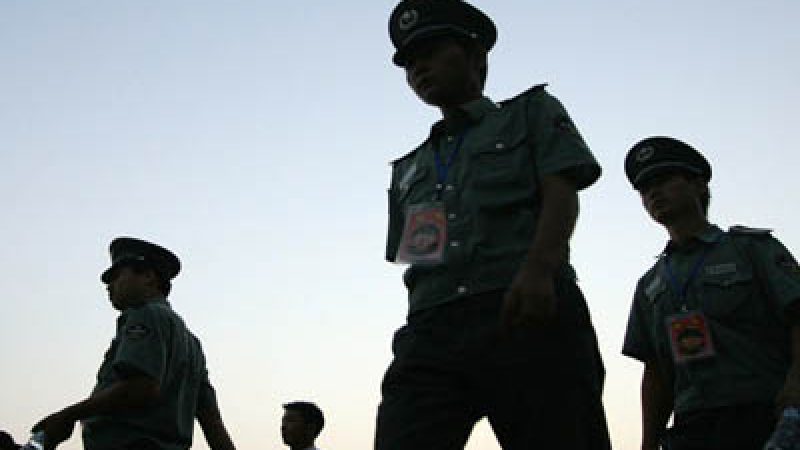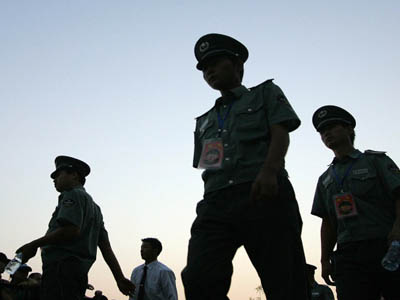
Chinese Regime Blacklists 247 Dissidents

Zan Aizong is a well-known Chinese blogger who’s sometimes critical of the Communist Party. In 2006, he was arrested and fired from his job as the Zhejiang bureau chief of the Chinese Ocean News for writing an article that exposed the forced demolition of a Christian church building.
Well now the regime has labeled him a dissident—adding him to a secret media blacklist and shutting down his blog.
The blacklist was created by China’s Propaganda Ministry. It contains the names of 247 so-called dissidents that Chinese media are now forbidden to interview or write about.
Chinese news service Boxun.net reports that the media have been ordered to copy the blacklist by hand—making sure there’s no electronic record.
Zan Aizong says these kinds of orders are common around politically sensitive dates. On October 1, the Communist regime will celebrate the 60th anniversary of its takeover of China.
In an interview with Sound of Hope Radio, Zan says the blacklist may actually draw more attention to the very people the regime is trying to suppress.
[Zan Aizong, Writer and “Dissident”]:
„Before, people didn’t care about what [dissidents] wrote, because there are hundreds of thousands of people in the media business. The more the media is asked to ignore them, the more the media will pay attention. The media may find alternative ways [to get input from the dissidents].“
Zan hasn’t personally seen a copy of the blacklist, but he says it’s a violation of the Chinese constitution.
[Zan Aizong, Writer and “Dissident”]:
„Handing out this document is equivalent to violating citizens’ rights to their names and reputations. If you don’t allow them to be published, it’s like saying there’s something wrong with the person or he’s made mistakes or broken the law. Their reputation would be tarnished. The [Propaganda Ministry] can be sued through civil laws.“
Other dissidents on the blacklist include democracy activist Liu Xiaobo, his wife Liu Xia, and an outspoken former associate professor at Peking University, Jiao Guobiao.
 (NTDTV)
(NTDTV)



























vielen Dank, dass Sie unseren Kommentar-Bereich nutzen.
Bitte verzichten Sie auf Unterstellungen, Schimpfworte, aggressive Formulierungen und Werbe-Links. Solche Kommentare werden wir nicht veröffentlichen. Dies umfasst ebenso abschweifende Kommentare, die keinen konkreten Bezug zum jeweiligen Artikel haben. Viele Kommentare waren bisher schon anregend und auf die Themen bezogen. Wir bitten Sie um eine Qualität, die den Artikeln entspricht, so haben wir alle etwas davon.
Da wir die Verantwortung für jeden veröffentlichten Kommentar tragen, geben wir Kommentare erst nach einer Prüfung frei. Je nach Aufkommen kann es deswegen zu zeitlichen Verzögerungen kommen.
Ihre Epoch Times - Redaktion